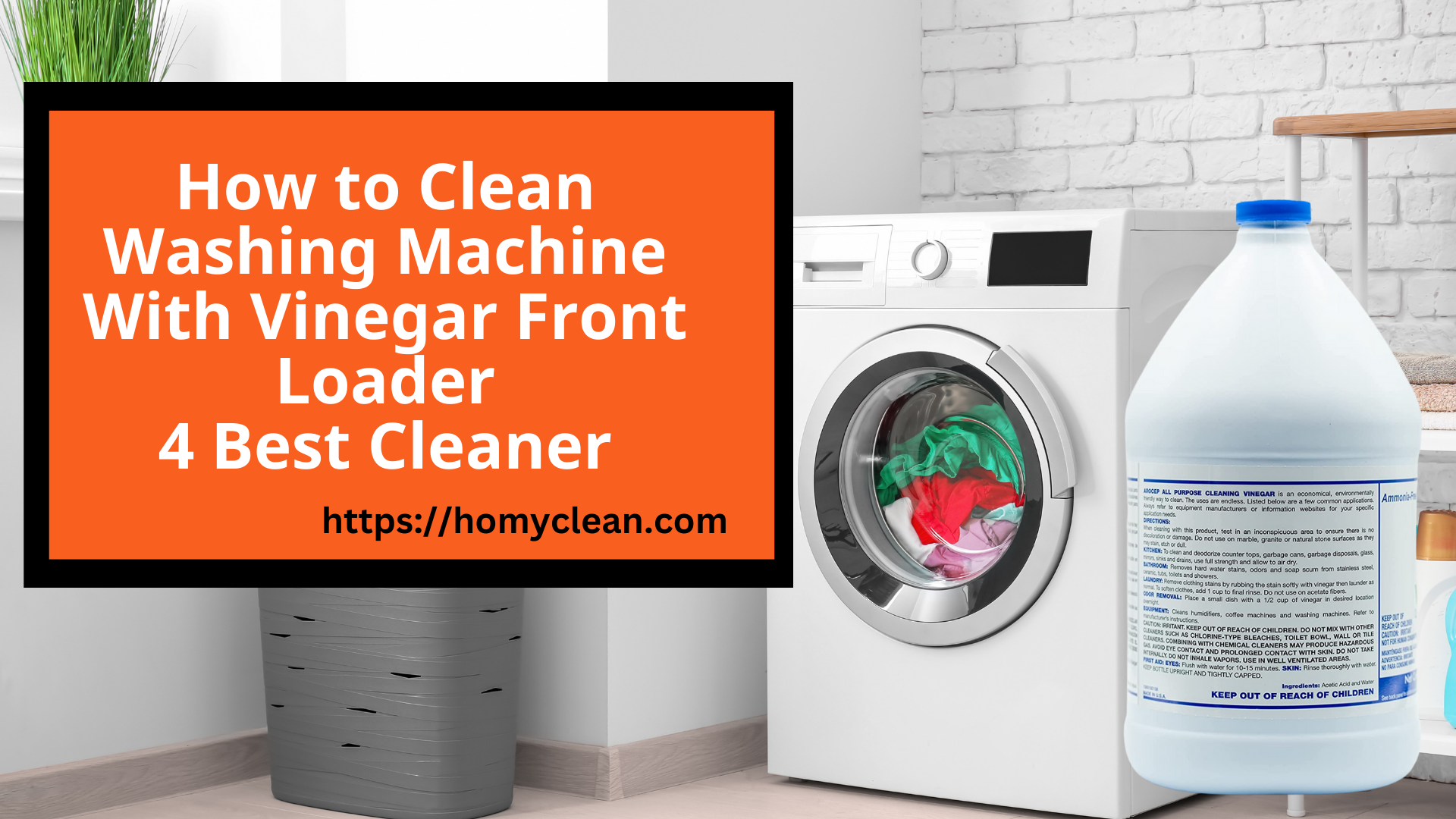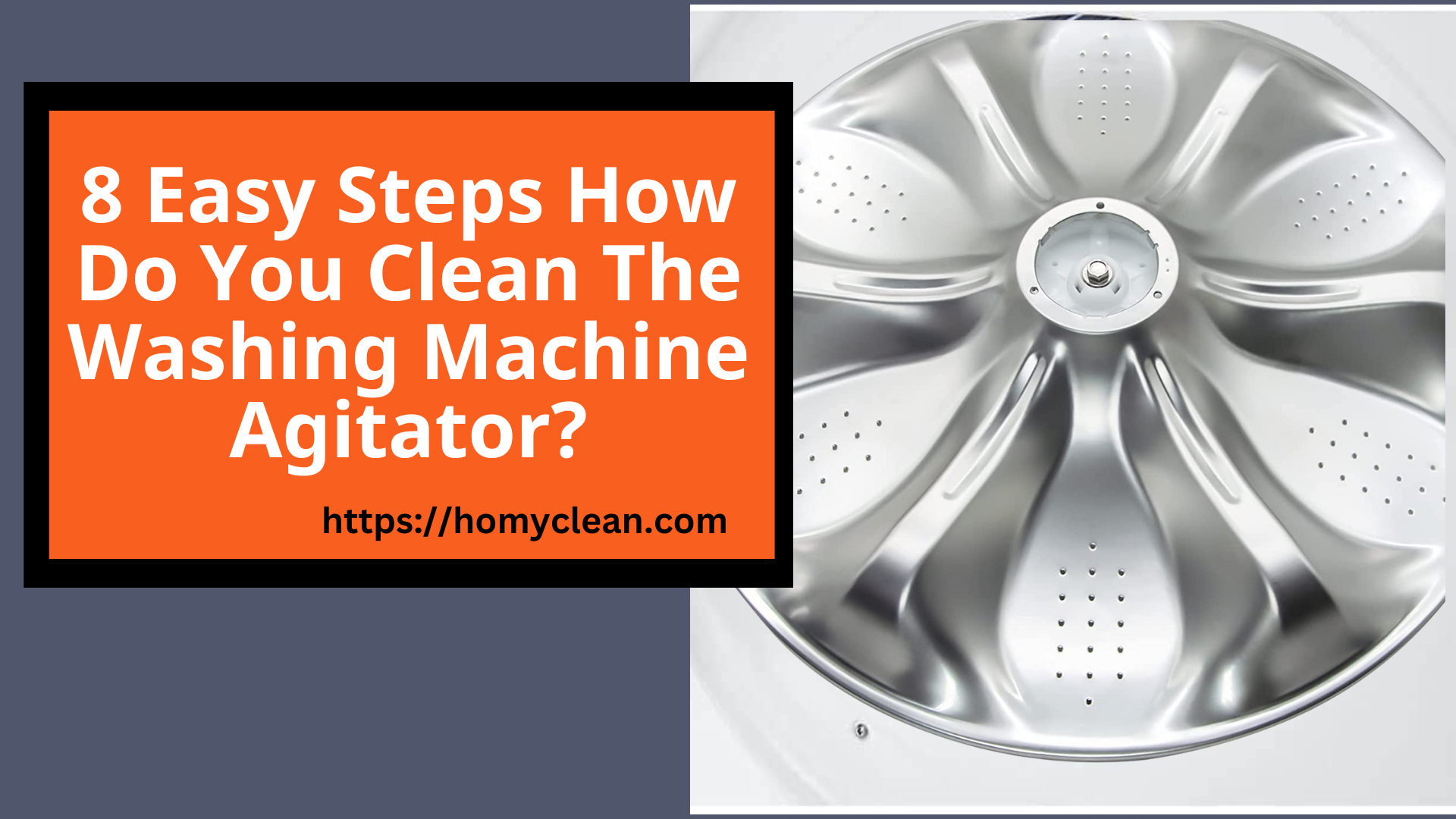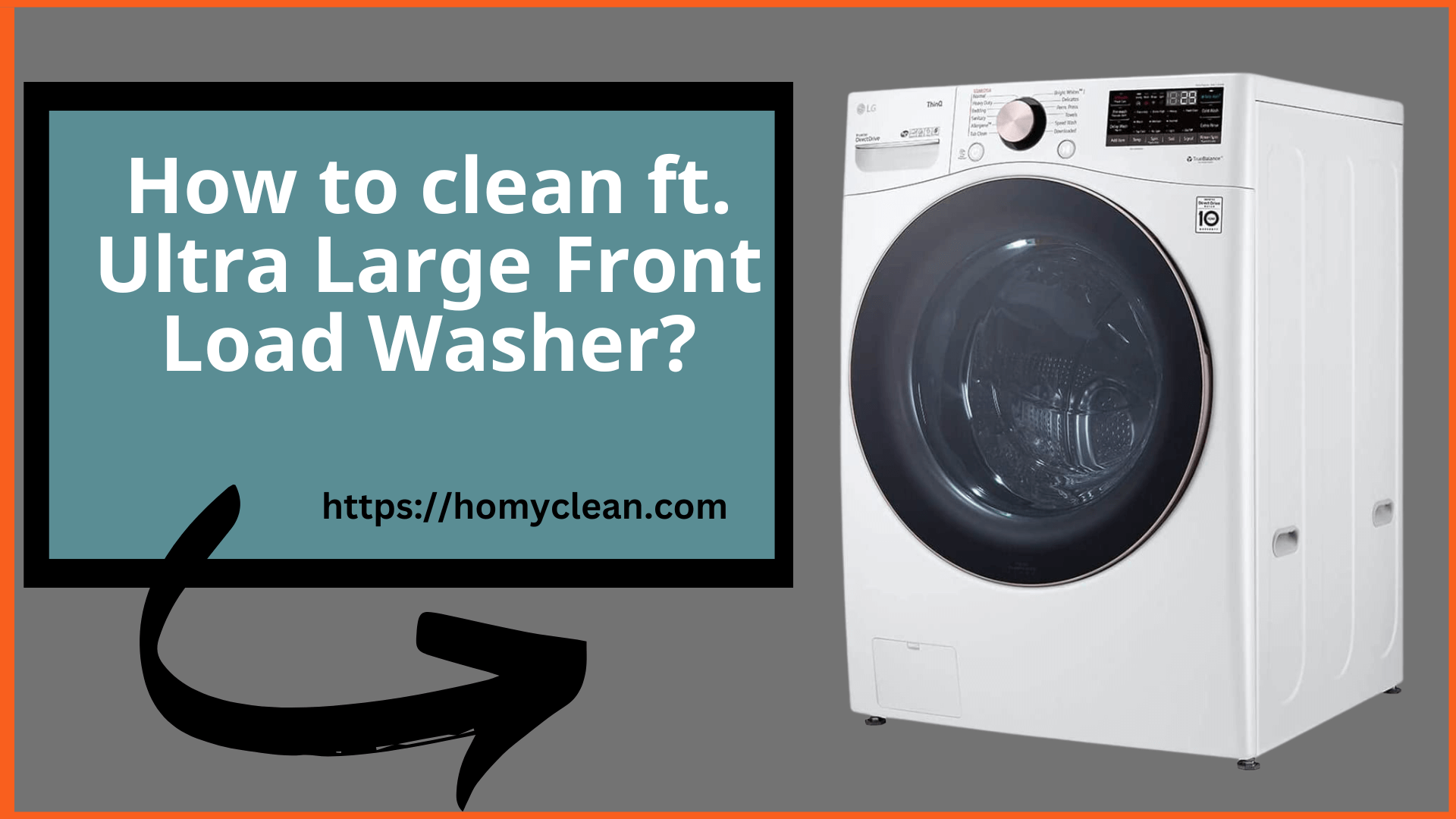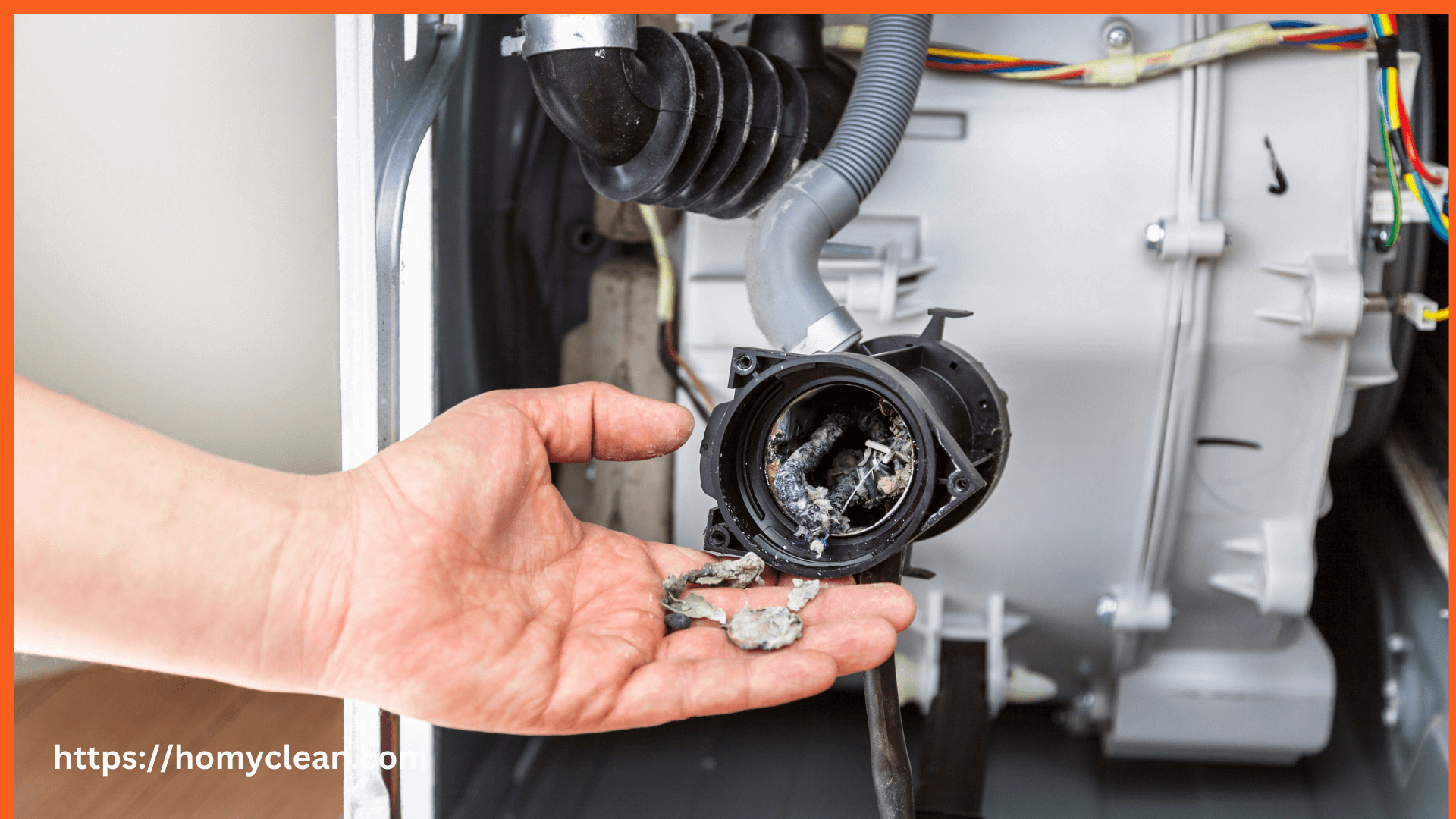Vinegar is a natural disinfectant and can be used in front-load washing machines to remove grime and bacteria. Be cautious as it may be harsh on delicate items. Commercial washing machine cleaners are also available. Here are the steps how to clean washing machine front loader with vinegar:
1. Cleaning The Empty Machine with Hot Water
Begin by running an empty load with hot water to clean the inside of the drum.
2. Mix White Vinegar and Water
Once the machine has filled with water, add 1-2 cups of white vinegar and let the machine agitate for a few minutes. Let the vinegar and water solution soak for about an hour. You should clean the inside of the machine to remove dirt and grime.
3. Restart The Washing Machine and Complete Cycle
After an hour, restart the machine and let it run through a complete cycle. After the cycle is complete, clean the inside of the drum and the door seal with a clean, damp cloth.
4. Repeat the Process
You can repeat the process using a stronger vinegar and water solution for stubborn stains or odors.
5. Again, Run an Empty Cycle with Hot Water
Finally, run another empty cycle with just hot water to rinse out the vinegar and ensure that the machine is thoroughly clean.
Regularly cleaning your washing machine will prevent the build-up of dirt and grime that can cause unpleasant odors and damage. Washing machines of all types, front-loading and top-loading, can be cleaned effectively and safely with vinegar.
Note: It’s important to use cleaning vinegar and not regular white vinegar for this process. Regular white vinegar may be too acidic for some washing machine parts and could damage them over time.
Recommended Article: Front Load Washer Machine Cleaning Hacks You Should Need to Know
Best Selling Clean Washing Machine With Vinegar Front Loader Products Review
1. All-Purpose White Vinegar Cleaning for Washing Machine

Washing machines can be cleaned with white vinegar, a natural disinfectant. Run a normal wash cycle with 1 cup of white vinegar in the detergent compartment. The vinegar will help to remove any built-up residue and disinfect the inside of your washing machine. Baking soda boosts cleaning power by 1/2 cup.
When cleaning your washing machine, always test a small amount of vinegar on a small area before using it for a full cleaning.
2. Aunt Fannies Distilled White Cleaning Vinegar for The Washing Machine
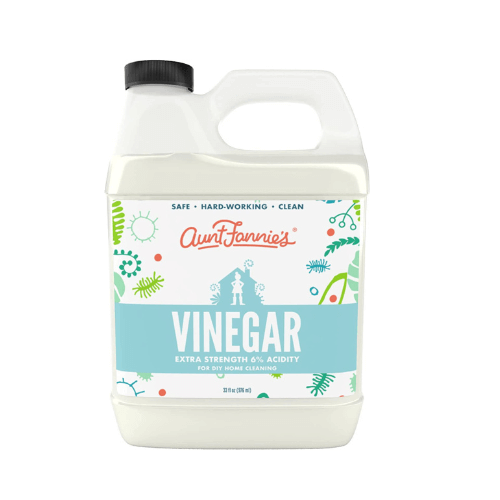
Aunt Fannie’s Distilled White Cleaning Vinegar is a cleaning product designed for washing machines. It is made from distilled white vinegar, a natural and effective cleaning agent. White vinegar is known for dissolving dirt and grime, removing stains, and eliminating unpleasant odors.
Using distilled white vinegar in your washing machine can help to remove buildup and keep your clothes looking and smelling fresh. Your washing machine can be rinsed with vinegar whenever you use regular detergent. You can also use it as a pre-treater for tough stains by applying it directly to the stain before washing.
It may only be compatible with some washing machines. Some washing machines may have difficulty handling the vinegar’s acidic nature, which could cause damage to the machine over time.
3. Originally Yellow Distilled for Cleaning washing machines
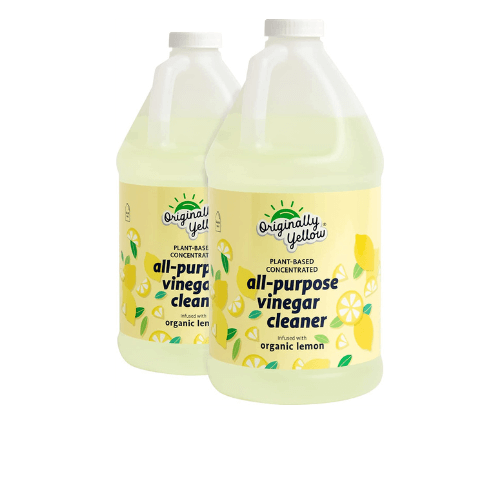
Yellow distilled White vinegar can be a natural and effective cleaner for washing machines. It can help remove dirt, grime, and bacteria from the inside of the machine and improve its overall performance.
To use Originally Yellow, white vinegar to clean a washing machine, add a cup to the detergent compartment and run the machine on a normal cycle. You can add a half cup of baking soda to the mix to boost its cleaning power. After the cycle is complete, run the machine again with just water to rinse out any residual vinegar. It will help remove any lingering odors and leave your washing machine fresh and clean.
For best results, it is recommended to clean your washing machine with vinegar once a month to keep it running efficiently and effectively. Be sure to regularly clean the dispenser drawer of your washing machine to remove any accumulated detergent or fabric softener residue.
4. Heinz Cleaning Vinegar, 128 Fl Oz for Washing Machine
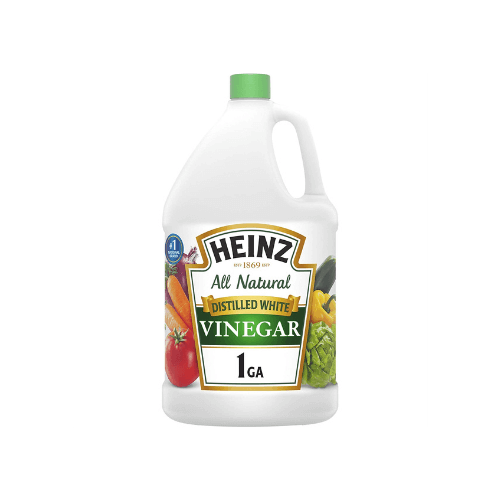
Heinz Cleaning Vinegar can be used for various household cleaning tasks, including washing your washing machine. To use it for this purpose, add 1/2 cup of Heinz Cleaning Vinegar to your washing machine’s detergent dispenser and run a normal wash cycle. You can prevent your washing machine from smelling dirty and smelling fresh by removing any detergent or fabric softener buildup.
Some laundry detergents contain enzymes or other ingredients that the acidic nature of vinegar can inactivate. If you use a specialized laundry detergent, it is best to check the manufacturer’s recommendations before using vinegar to wash your washing machine.
Related Articles:
- How To Get Rid of Black Sludge In The Washing Machine? (Easiest Ways)
If you want to read all the laundry related articles, visit here. Visit here for the 10 best washing machine cleaner, visit homyclean for Products Review.
Frequently Asked Questions
Can I Run Vinegar Through My Front Load Washer?
It is generally not recommended to use vinegar in a front-load washer. Vinegar is an acidic substance that can damage your washing machine’s rubber seals and hoses. It can also leave a lingering smell in the machine that can be difficult to remove.
Instead of vinegar, you can use a washing machine cleaner specifically designed for front-load washers. These cleaners effectively remove soap scum and other buildups that can cause odors in your machine. Additionally, you can use bleach to clean and disinfect your front-load washer. Just follow the instructions on the product label and use the correct amount of bleach for your machine.
Do Vinegar and Baking Soda Damage The Front Load Washing Machine?
No, vinegar and baking soda will not damage your washing machine. Both vinegar and baking soda are commonly used as natural cleaning agents for washing machines. The mild acidity of vinegar can help remove dirt and grime as well as kill bacteria and mold. As a mild alkaline substance, baking soda neutralizes odors and gently removes dirt and grime. When used together, vinegar and baking soda can be a very effective cleaning combination for your washing machine.
However, using vinegar and baking soda should be done in moderation. Too much of either substance can cause damage to your washing machine, as well as to your clothes. It is generally recommended to use no more than one cup of vinegar and one cup of baking soda for a standard-sized load of laundry.
When used in moderation, vinegar and baking soda are safe and effective cleaning agents for your washing machine. Just be sure to use them as directed and avoid using too much of either substance.
Is Bleach or Vinegar Better for Cleaning The Washing Machine?
It’s generally best to use a washing machine cleaner designed for the job rather than household cleaners like bleach or vinegar. These household cleaners can be harsh and may damage the internal components of your washing machine. Washing machine cleaners are formulated to clean and freshen the inside of your machine without damaging it. If you don’t have a washing machine cleaner, try mixing baking soda and water. It can help to remove any built-up grime and freshen the inside of your machine.
How do You Clean The Rubber Seal on a Front Load Washer?
A front-loading washing machine’s rubber seal can be cleaned with mild detergent and warm water using a small amount of detergent. Take care to keep the seal intact when wiping it down. Wring out the cloth or sponge so that it’s not too wet. If the seal is particularly dirty, you may need to use a soft-bristled brush to help loosen and remove any built-up grime. To remove soap residue, rinse the seal thoroughly with warm water once it has been cleaned. Avoid using harsh cleaners or abrasive scrubbing pads, as these can damage the rubber seal.

